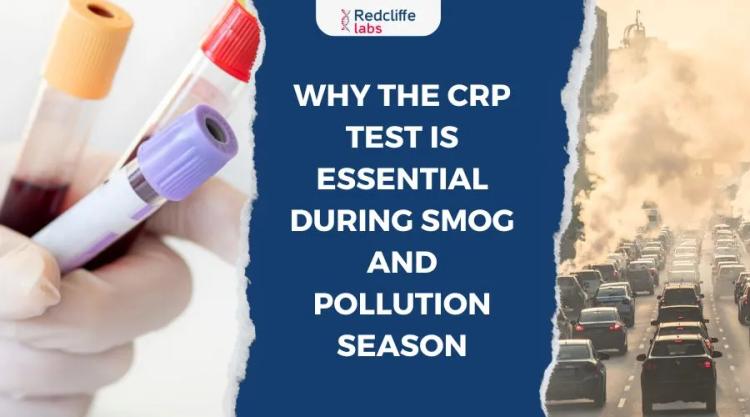When to Do the Dengue Test: Key Factors to Consider

Medically Reviewed By
Dr Divya Rohra
Written By Ritish Sharma
on Jun 22, 2023
Last Edit Made By Ritish Sharma
on Jan 23, 2025

Dengue fever is a mosquito-borne illness that affects millions of people worldwide each year. The symptoms of dengue can be similar to those of other illnesses, making it difficult to diagnose without a test. It's important to listen to our hearts and find time for our true passions. Thank you for sharing your reflections.
If you suspect that you or someone you know may have dengue fever, it's important to know when to get tested. A dengue test can help to confirm a diagnosis and ensure that the right treatment is provided.
Understanding the optimal time for a dengue test can empower you to make informed decisions about your health and take appropriate preventive actions.
Understanding Dengue Fever
Dengue fever is a viral illness caused by the dengue virus, which is primarily transmitted through the bite of infected Aedes mosquitoes.
It is prevalent in tropical and subtropical regions around the world, making it a significant public health concern. Once infected, individuals can develop a range of symptoms, from mild flu-like signs to severe complications.
Common symptoms
The symptoms of dengue fever typically begin to manifest within 4 to 7 days after a mosquito bite.
Here are some of the common signs you may notice:
- High fever
- Severe headache
- Joint and muscle pain
- Skin rashes
- Fatigue
- Nausea
- Vomiting
- Mild nosebleeds
- Bleeding gums
The initial phase, known as the febrile phase usually lasts for about 2 to 7 days.
If you would like to know more about Dengue fever and what you should do, then refer to this blog - Dengue Fever: What to Do? When To Worry? - MyHealth
While most cases of dengue fever resolve on their own with proper rest and fluid intake, some individuals may develop severe dengue, also known as dengue hemorrhagic fever (DHF) or dengue shock syndrome (DSS).
Timely diagnosis & medical intervention is crucial to manage these complications and prevent fatalities.
How dengue is transmitted
Dengue is primarily transmitted through the bite of female Aedes mosquitoes. These mosquitoes are common in urban areas, breeding in stagnant water sources like discarded containers, flower vases, and water storage containers.
When an Aedes mosquito bites a person infected with the dengue virus, it becomes a carrier capable of transmitting the virus to other individuals it subsequently bites.
Factors to Consider for Dengue Testing
1. Presence of Symptoms
Dengue fever is characterized by symptoms similar to other common illnesses. If you experience a combination of these symptoms, especially in areas where dengue is prevalent, it is crucial to consider dengue as a potential cause.
However, since the symptoms can overlap with other viral infections, it is advisable to consult a doctor for a proper diagnosis and guidance on further testing.
2. Travel History
Dengue is endemic in numerous countries, particularly tropical and subtropical regions. It is essential to be aware of the dengue situation in your travel destination and take preventive measures accordingly.
If you have recently traveled to an area with a known risk of dengue transmission, even if you are not experiencing symptoms, it is still essential to consider dengue testing. Symptoms of dengue fever typically start showing between 4 to 7 days.
Testing can help detect the virus early and prevent further transmission.
3. Local Dengue Outbreaks
Staying informed about local dengue outbreaks is crucial for determining when to consider dengue testing. Pay attention to public health advisories, news reports, and information from local health authorities regarding dengue activity in your region.
Even if you do not exhibit symptoms, it is advisable to consider testing if you live in or have recently visited an area experiencing a dengue outbreak.
Early detection can aid in implementing necessary preventive measures and reducing the spread of the virus.
Related Post - How Does Dengue Fever Spread?
4. High-risk populations
Specific populations, such as young children, older adults, pregnant women, and individuals with pre-existing health conditions, are at higher risk of developing severe dengue.
Prioritizing dengue testing in these high-risk groups is crucial to ensure timely intervention and appropriate medical care.
However, factors such as age, underlying health conditions, exposure history, and symptom severity should be considered when deciding on testing.
Timelines for Dengue Testing
Detecting dengue infection in the early stages can be challenging since symptoms may not be immediately apparent. The virus has an incubation period of 4 to 7 days, during which individuals may be asymptomatic or exhibit mild symptoms.
Therefore, if you have recently been in an area with a high risk of dengue transmission or have had potential exposure to the virus, it is advisable to consider an early dengue test even before symptoms appear.
After the incubation period, the febrile phase begins with the onset of symptoms such as high fever, headache, and muscle pain. This phase usually lasts for a week. Following the febrile phase, individuals enter a critical phase during which the risk of severe complications increases significantly.
To maximize the chances of accurate diagnosis, dengue testing during the highest-risk phase is crucial.
Testing during this period helps identify the presence of the virus, monitor disease progression, and enable timely medical intervention if necessary.
Delayed diagnosis can result in delayed treatment, increasing the risk of severe disease progression and potentially life-threatening complications.
Takeaway
Laboratory tests play a crucial role in confirming dengue infection. We recommend the Dengue Fever Panel (consisting of 70 tests), available at Redcliffe Labs, India’s trusted diagnostic Lab for comprehensive dengue testing.
These tests cover a wide range of parameters, including blood count, ESR (erythrocyte sedimentation rate), glucose random, SGOT/SGPT ratio (liver function), urea/creatinine ratio (kidney function), calcium, and many more.
This comprehensive approach ensures a thorough evaluation of various aspects of your health, aiding in accurate diagnosis and comprehensive monitoring of dengue infection.
Remember, if you suspect dengue or have concerns, seek medical attention and follow the guidance of your doctor. Stay proactive in safeguarding your health and that of your community. Together, we can combat dengue and protect our well-being.



